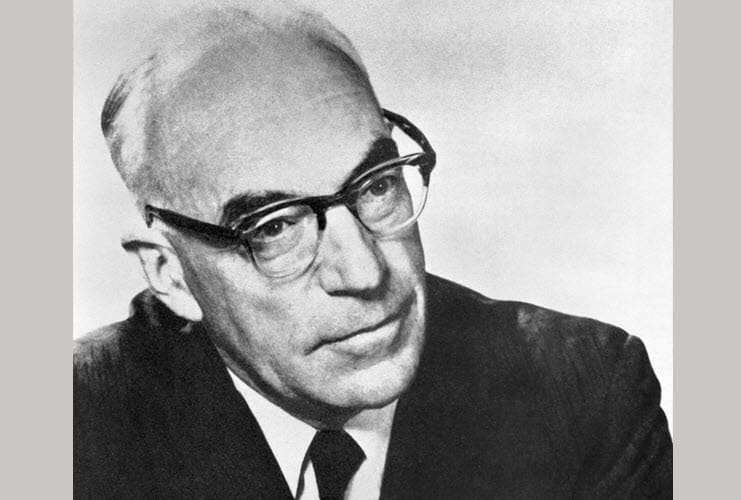John Carew Eccles (27 January 1903 – 2 May 1997) was an Australian neurophysiologist who made significant contributions to the understanding of the synapse and the functioning of the nervous system. He won the 1963 Nobel Prize in Physiology or Medicine for his work on the synapse.
Life and Career
He was born on 27 January 1903, in Melbourne, Australia. He attended Melbourne High School and then studied medicine at the University of Melbourne, where he earned his MBBS degree in 1925.
After completing his medical degree, Eccles worked at the Royal Melbourne Hospital before moving to England in 1927. In England, he worked with the renowned neurophysiologist Charles Sherrington at the University of Oxford, where he earned his DPhil degree in 1929. Eccles returned to Australia in 1937 and began his research at the University of Otago in New Zealand, where he made his most significant contributions to neuroscience.
His research focused on the synapse, the tiny gap between two nerve cells where chemical signals are transmitted. He was able to show that the synapse was not a passive structure but an active one that could amplify or inhibit signals. Eccles’ work revolutionized the field of neuroscience and laid the groundwork for much of the research that followed. He was awarded the Nobel Prize in Physiology or Medicine in 1963, along with Andrew Huxley and Alan Hodgkin, for their work on the ionic mechanisms of nerve cells.
He died on 2 May 1997, in Switzerland.
Award and Legacy
He was awarded the Nobel Prize in Physiology or Medicine in 1963, along with Andrew Huxley and Alan Hodgkin, for their work on the ionic mechanisms of nerve cells. Eccles’ research focused on the synapse, the tiny gap between two nerve cells where chemical signals are transmitted. He was able to show that the synapse was not a passive structure but an active one that could amplify or inhibit signals.
His contributions to neuroscience revolutionized the field and laid the groundwork for much of the research that followed. He was awarded numerous awards and honors throughout his career, including the Royal Society’s Royal Medal in 1952, the Order of Merit in 1971, and the Companion of the Order of Australia in 1990.
Today, Eccles is remembered as one of the greatest neurophysiologists of the 20th century. His work has had a profound impact on our understanding of the brain and its functions, and his legacy continues to inspire and inform the work of neuroscientists around the world.

